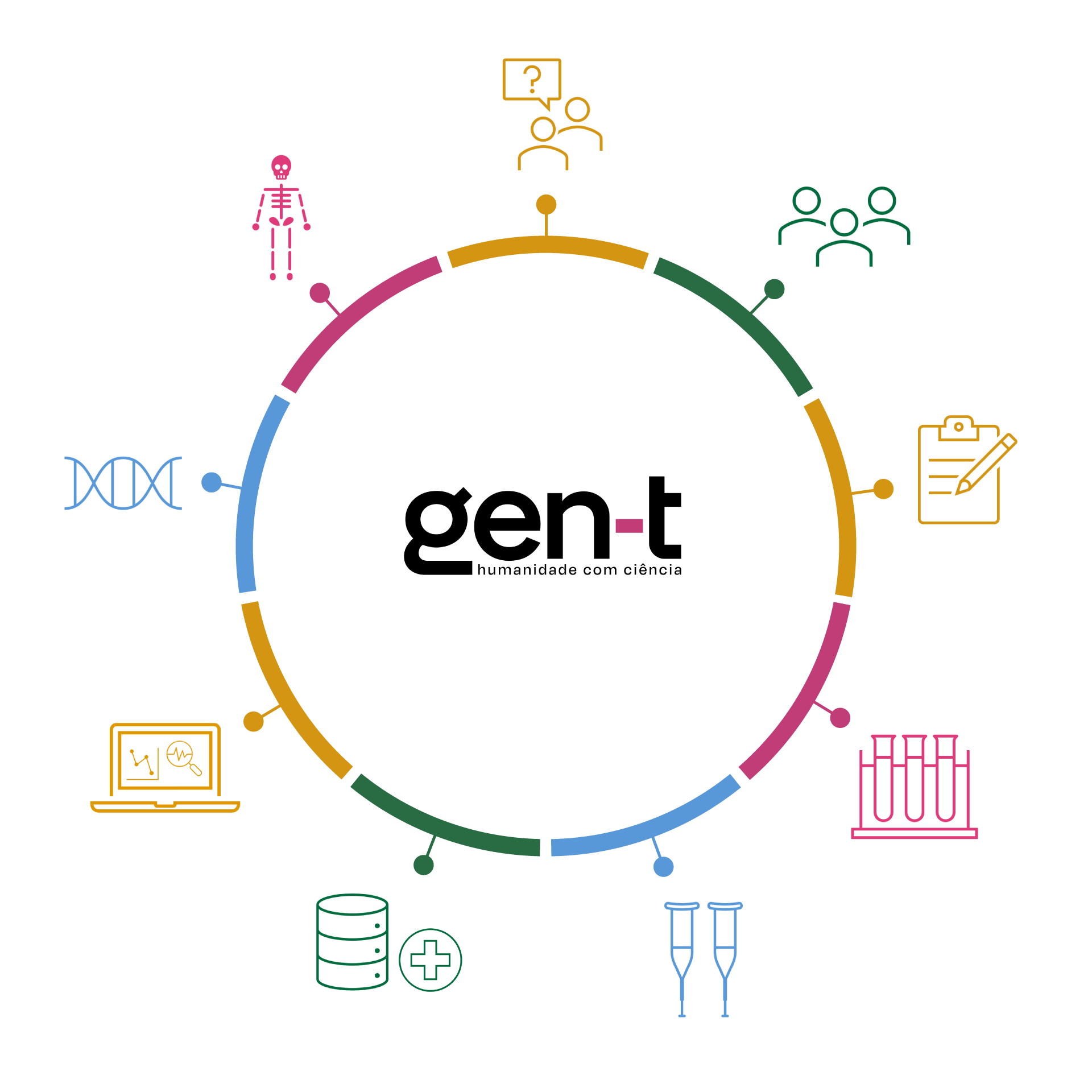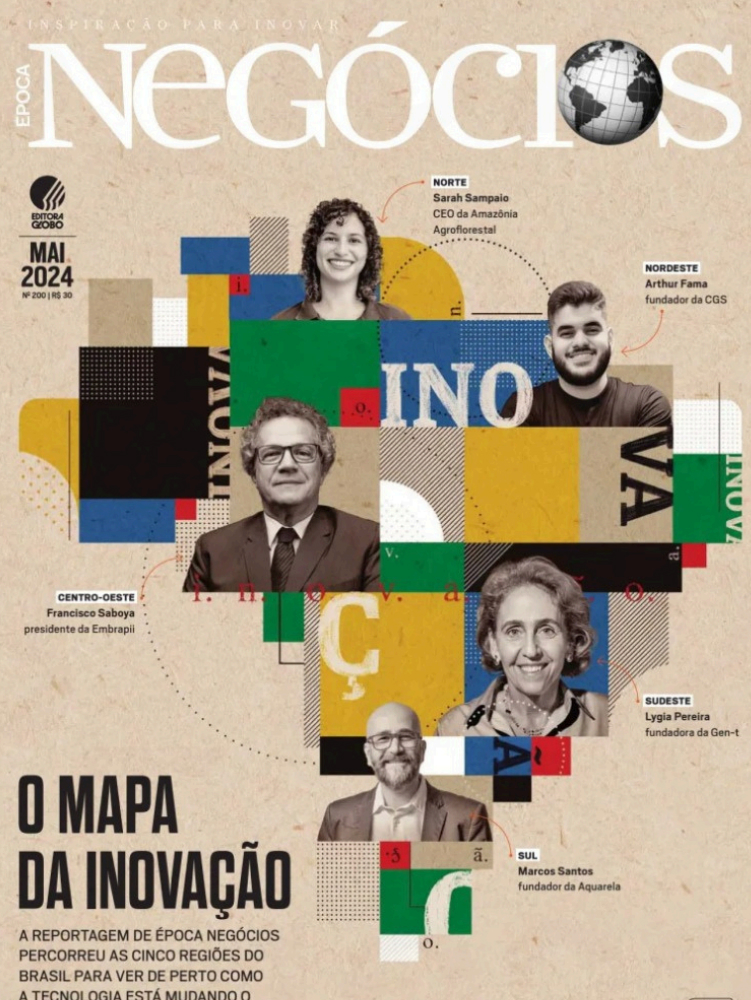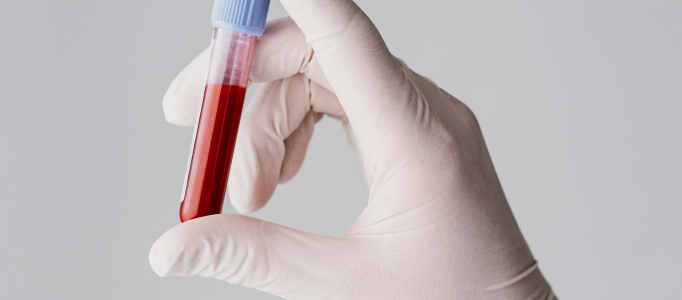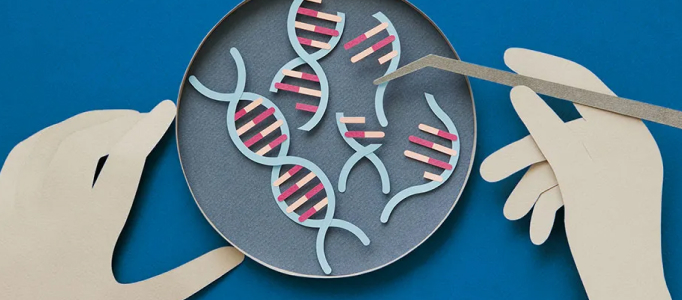We are a group of nonconformist scientists addressing the lack of diversity in genomic banks, which leads to inequality in medical advances and lost opportunities in research and innovation.
Therefore, we have developed an innovative and disruptive proposal: a biobank representing the diversity and admixture of the Brazilian population. This initiative will enhance the inclusion of marginalized communities in precision medicine and accelerate innovation in the health industry.
Why Brazil?
210 million people
The largest population
Pratically unknown indigenous component
500 years
Why Brazil?
210 million people
The largest population
Pratically unknown indigenous component
500 years
gen-t R&I platform
Integration of genomic, clinical and behavioral data

gen-t project
Our goal is to comprehend the genetic diversity within the Brazilian population and recognize variations associated with various health traits. By doing so, we intend to support researchers and companies in developing of more precise and effective medicines.
Recruitment began in January 2023, and we have already enlisted nearly 10,000 volunteers from all regions of the country.

Our goal is to comprehend the genetic diversity within the Brazilian population and recognize variations associated with various health traits. By doing so, we intend to support researchers and companies in developing of more precise and effective medicines.
Recruitment began in January 2023, and we have already enlisted nearly 10,000 volunteers from all regions of the country.
gen-t researchers
Prof. Lygia V. Pereira
"The project's findings could translate into developing new drugs that are more effective, specific and intelligent. And best of all: this is not a benefit for the individual, it's a benefit for everyone."
Ph.D. in Human Genetics from Mount Sinai Graduate School and Full Professor of Human Genetics at the University of São Paulo. Gen-t was founded with the understanding of the critical need to enhance genetic diversity worldwide.
Professor Tábita Hünemeier
"We want to understand who the Brazilian population is and how this, in the long run, can lead to improvements in our healthcare system."
Associate Professor at USP and Ph.D. in Population Genetics, with an emphasis on the study of native and mixed populations of the Americas. In 2015, Tábita received the L’Oréal Women in Science Award.
Dr. Alexandre Pereira
"This project is not just a building block, it is a structural module that can revolutionize how people do things. It can change the way this type of research is conducted in Brazil."
A cardiologist and Ph.D. in Molecular Genetics from the University of São Paulo, Alexandre is a researcher at the Laboratory of Genetics and Molecular Cardiology at the Heart Institute.
Partners














Press

The Innovation Map in the five regions of Brazil

Gen-t, which plans to have the largest gene bank in Latin America, receives funding from Eurofarma






